Alasdair Smith, CEO of Scottish Bakers, on how the country’s ‘family’ has helped each other through the darkest days
For Scottish Bakers, the first indication of how serious the Covid-19 outbreak would be came long before lockdown.
By mid-February, the trade association had started hearing the same message from businesses it provides training services for. “They were saying they couldn’t have us on the premises any more as they started to lockdown for their own purposes,” explains Scottish Bakers chief executive Alasdair Smith. “As that progressed into mid-March we had a constant stream of businesses asking us to stay away to protect the workforce.”
By then, concern had spread throughout an industry that employs some 12,000 people across the country.
“The initial uncertainty in the days before and immediately after lockdown was incredibly unsettling for our members,” says Smith. “Businesses were concerned for their future and whether they could survive the lockdown period, but also for the safety, welfare and livelihoods of their employees.”
The period immediately after lockdown – “the first few dark days” before announcement of government support – were among the most stressful for Scottish Bakers’ members.
With the furlough scheme and grants alleviating some of the pressure, the concerns moved on to a viable way to keep baking. “It’s to the enormous credit of so many of our members that they adapted and innovated very quickly to find new ways of reaching their customers,” says Smith.
Businesses that had not traded online before – and were quite nervous about the process – developed online stores rapidly. And as seen across the UK, others launched home delivery or click-and-collect systems.
Businesses have been willing to help each other and exchange information, with bakers who have set up online operations happy to tell others how they have done this. Scottish Bakers helped in this, sharing case studies and stories, so that businesses could benefit from the experiences of others.
We talk quite openly about this wonderful Scottish Bakers family and I think the ‘family’ has come into its own throughout this crisis and ensured nobody goes wanting for support
“It’s what makes the Scottish bakery sector so special,” adds Smith. “We talk quite openly about this wonderful Scottish Bakers family and I think the ‘family’ has come into its own throughout this crisis and ensured nobody goes wanting for support.”
As for Smith himself, a key role is taking part in a regular roundtable discussion – initially daily and now three times a week – with other trade bodies and stakeholders. It has been “absolutely invaluable” to hear experiences from other parts of the food chain and having direct connection into the government, says Smith.
“We’ve been able to work with those others and inform their responses to the key issues and challenges,” he explains, adding that, to the credit of the Scottish government, it has been in “listening and understanding mode”.
Scottish Bakers has also talked regularly with the Craft Bakers Association and the Federation of Bakers to share intelligence and experience.
“That sense of unity across the trade continues to humble me,” says Smith, who was appointed Scottish Bakers CEO in 2018. “It has been particularly helpful in interpreting the emerging advice around PPE [personal protective equipment] for example, or around furlough schemes.”
Regular polling of its members has shown that trade confidence has grown steadily since lockdown, although there remain understandable concerns. A key one is consumer demand, although the association has heard from members that it is perhaps better than expected.
Social distancing and its impact on staffing is also a worry for many as they bring workers back from furlough.
“A busy retail shop may have had six people working on a Saturday,” explains Smith. “There’s now only going to be room for two, so there is a genuine concern for people’s livelihoods as the furlough scheme begins to wind down.”
For wholesale and food-service firms, there is a lot of anxiety around how quickly trade and demand will build up if, as currently planned, Scottish pubs and restaurants reopen on 15 July. “Foodservice members were devastated by the lockdown. Even if we hit the 15 July target for reopening tourism and hospitality, it’s not going to be like hitting a switch and supplies returning to normal.”
Whether in a rural community or on a town or city high street, this has been an opportunity to revisit what bakeries once were in generations gone by
While careful not to understate the challenges still to be faced, Smith believes there are some positives to take from the industry’s reaction to the outbreak, not least how invaluable bakeries have been to their local communities.
“Whether in a rural community or on a town or city high street, this has been an opportunity to revisit what bakeries once were in generations gone by,” he says.
“If consumers have enjoyed the product and a chat with the people behind the counter, I’m hopeful the reconnection at community level – that we’re hearing about from other parts of the high street like butchers and small grocery stores – can be sustained.”
Smith also wants to see businesses continue to develop and adapt. “If there is a positive to be had from this, it is that it has injected a genuine sense of innovation in a number of businesses and we need to ride that wave through the remaining days of the crisis and into the future.”
Scottish Bakers is also looking ahead, with plans to ramp up its training activity and to help more businesses embrace the opportunities around digital. It has also set aside dates for its annual conference and awards event, which was cancelled this year due to lockdown.
“We’re not out of the woods yet, and much of the journey remains to be determined,” says Smith. “All we can do as a trade association is continue to inform our members and provide support, and we will shift and adapt should circumstances change.”




















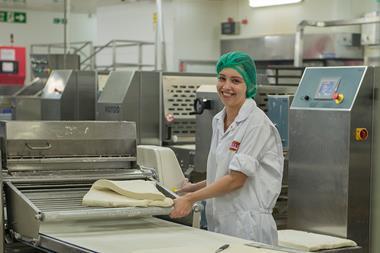
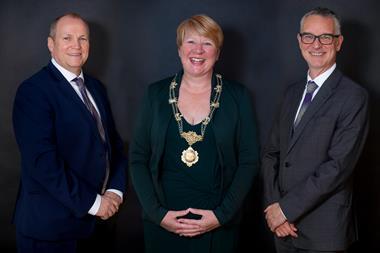
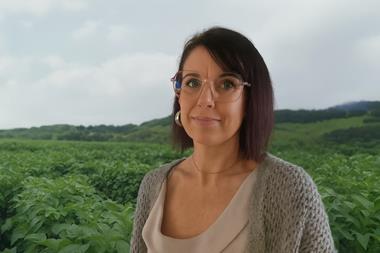

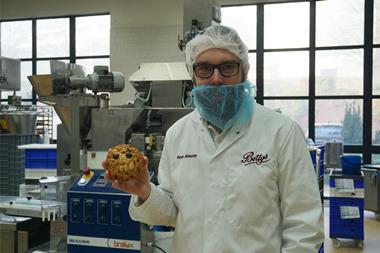


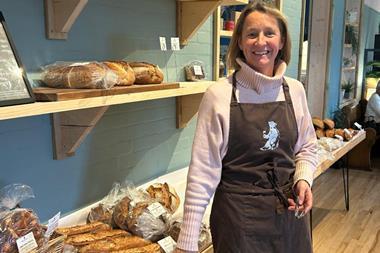

No comments yet